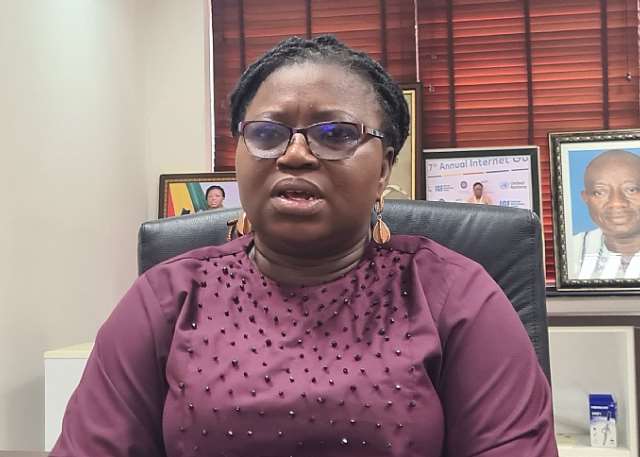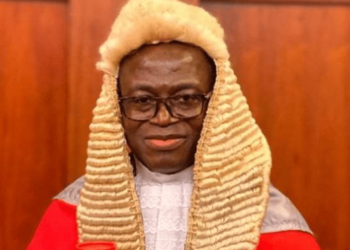Minister of State for Public Sector Reforms, Hon. Lydia Lamisi Akanvariba, has charged a newly constituted 22-member technical committee to develop a comprehensive National Public Sector Reform Strategy (NPSRS) to run from 2025 to 2029.
At the inauguration of the committee in Accra, the Minister outlined her expectations for a document that will drive Ghana’s public service into a new era of collaboration, efficiency, and responsiveness to citizens’ needs.
According to the Minister, the strategy is intended to be “a real citizen-centered technical blueprint” that compels collaboration across all arms of the public sector. Speaking at the inauguration, the Minister stated that this reform effort is aimed at delivering a more robust and modern public sector.
“We want to have – a national public sector reforms strategy that will ensure that there is a collaboration between all the public sector institutes. There will be that document that will drive the public sector – to provide modern services to the citizens of the country”
Hon. Lydia Lamisi Akanvariba, Minister of State for Public Sector Reforms
She emphasized that the goal is to shift the public service from mere bureaucratic function to meaningful service provision for all Ghanaians. In her words, this document must help establish “a more efficient and effective sector.”
The Minister provided a timeline for the delivery of the new strategy, giving the technical committee four months to finalize the draft. She indicated that this five-year strategy would differ from past initiatives which were typically limited to two or three years and lacked continuity.
“In the next four months, we should be able to finish with the finalization of the report, and that one is going to serve us from 2025 to 2029″
Hon. Lydia Lamisi Akanvariba, Minister of State for Public Sector Reforms
The strategy is also expected to study the failures and challenges of previous reform programs to avoid similar outcomes. The Minister stressed that the new plan must take stock of what has worked and what has not, and offer clear solutions for long-term transformation.

Lydia Akanvariba drew attention to Article 191 of the Constitution, which defines the scope of the public sector, including entities like the police, local government, and ministries such as Transport and Foreign Affairs.
She reminded the public that these institutions are non-profit agencies established to serve the populace, and improving their service delivery is at the heart of the reform.
Citizen and Worker Accountability
A member of the 22-member technical committee addressed a persistent issue within the public sector – public perception of corruption. The member explained that much of the mistrust stems from unclear processes, slow service delivery, and lack of transparency, which citizens often interpret as corruption.
He noted that when people don’t understand what services they are entitled to or feel mistreated during service delivery, it increases suspicion. As such, one of the key objectives of the reform is to clarify purpose, improve processes, and refocus public servants – what the committee refers to as the “three Ps.”
He further stated that an efficient public service must not only deliver quality services but also actively educate citizens on how to access those services and what procedures exist to report grievances. The proposed strategy will, therefore, include mechanisms for public education and redress systems.

The committee member stressed that addressing corruption must also involve the public. He cautioned against placing all blame on public servants when some citizens actively engage in practices that fuel unethical behavior.
“If you have a citizen who is bent on getting a service that they don’t deserve and they proceed to go ahead and pursue a civil or public servant to the point of wanting to give them money… you don’t blame only the civil servant”
She argued that while disciplinary action must be taken where necessary, it is essential to recognize the role society plays in enabling such misconduct. The committee believes that a cultural reform among citizens is as critical as institutional reform.“This process of reform would also require a certain reform in the minds and thinking and actions and behaviors of Ghanaians as a whole.”
With the government prioritizing public sector performance as a pillar of national development, the success of this new strategy could mark a turning point in service delivery across the country. The Ministry of Public Sector Reforms maintains that both the people and the institutions must evolve to meet modern governance expectations.
READ MORE: Ghana’s Economy Beats 2024 Figures with 5.3% Growth in Q1 2025























